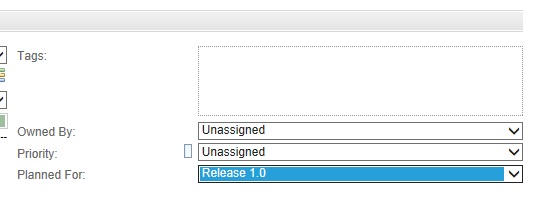Get the Planned For Value set in a Work Item from Java API
Hello,
for example I have an WorkItem number xxxx which the value of the Planned For field is "Release 1.0".

What I need is to get from my script is the value "Release 1.0" for that work item number,
Is there some few lines of code simple to do that? (I already have the workitem variable available in my script)
Thanks a lot for the help.
Accepted answer
Comments
It was a little hard for me, but I could figure out how to obtain the Planned For value of a workitem using the class PathHelper of your example of the link. I did:
Already having the iAttribute....
def plannedForHandle = workItem.getValue(iAttribute)
PathHelper ph = new PathHelper(repo, new SysoutProgressMonitor());
ph.calculateIterationPath(plannedForHandle);
String paths = "IDPath: [" + ph.toIDPathString() + "] NamePath: (" + ph.toNamePathString() + ")";
println "Planned For result is : " + paths
Thanks a lot for the help.
PS: My script is groovy, so I implemented the java way.
It would make sense, if you provided the info around groovy in the question. Otherwise it becomes confusing with all the different environment.